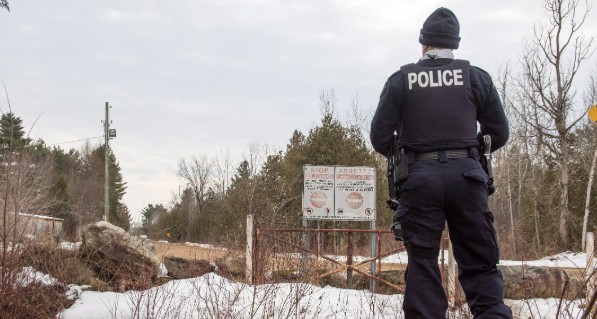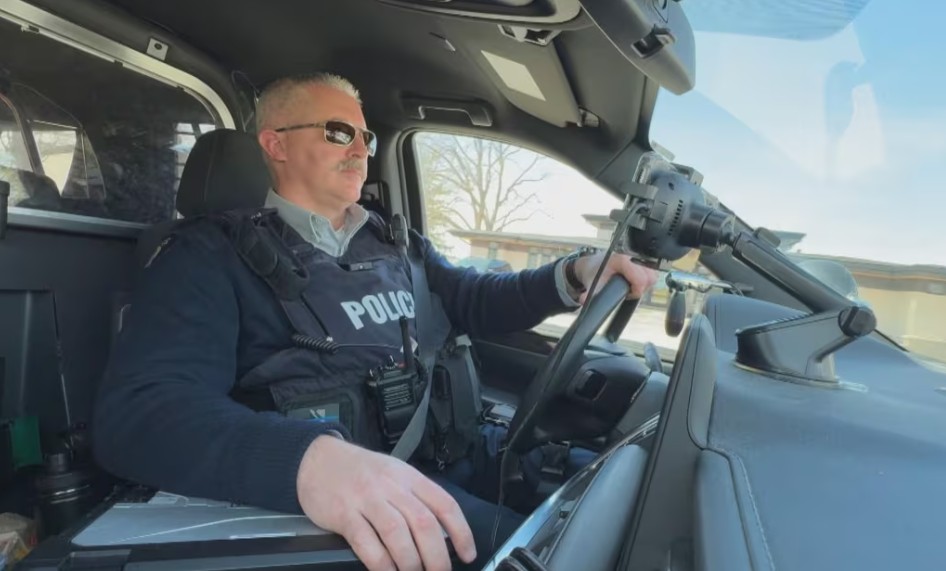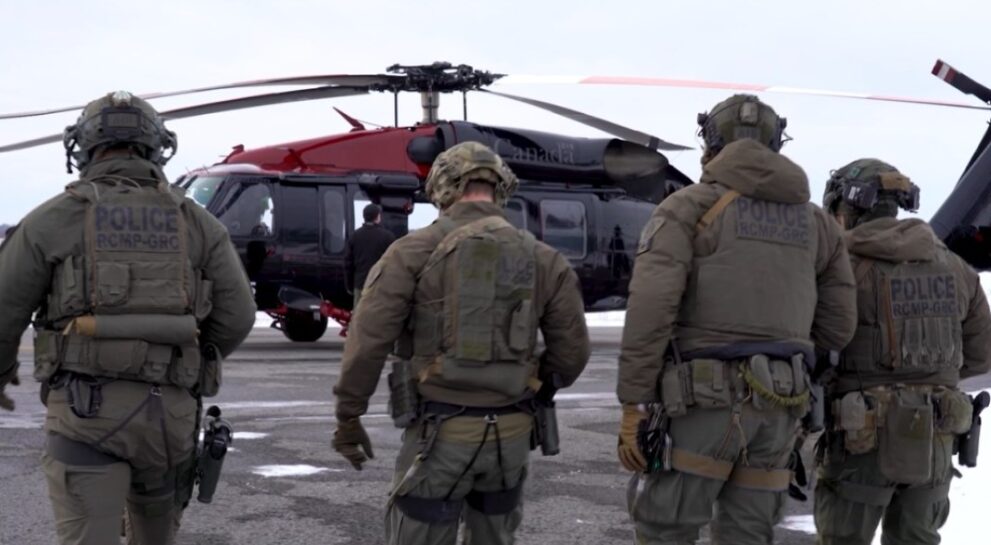RCMP officers stationed at the Windsor, Ontario detachment have been conducting border patrols along the Canada-U.S. border in unprecedented ways since U.S. President Donald Trump advocated for enhanced security measures between the two nations.
Starting in December, Constable Ian Smith and over 40 of his colleagues in the southwestern Ontario city have been dedicating their 12-hour shifts to patrolling approximately 800 kilometers of coastline. Their route spans from Tobermory, through Sarnia, along the Detroit River, and back to Port Burwell, located just southeast of London.
“We are on the lookout for any suspicious activities related to individuals or contraband, including drugs and goods being smuggled into or out of Canada,” Smith stated.

In response to Trump’s concerns regarding the influx of drugs and migrants, Canada unveiled a $1.3 billion border security initiative in December. Ottawa tasked the RCMP with the responsibility to “secure the border,” according to Smith.
During the initial four months of these patrols, Smith noted that the efforts have not produced significant results, partly due to the reduced activity in the waterways during the colder months.
Smith indicated that quantifying this type of work presents significant challenges.
“We are out here daily to deter illegal activities, so if we are not apprehending individuals, it is likely due to our deterrent efforts,” Smith remarked.
“With 800 kilometers of coastline, how can we maintain constant patrols? It is simply unfeasible,” he continued.
In January, the Ontario Provincial Police (OPP) launched Operation Deterrence, collaborating with the RCMP to bolster border security. Two hundred OPP officers are assigned to monitor the boundary between the two nations.
“A more coordinated, Team Canada strategy that involves increased personnel on the ground is essential for detecting, deterring, and disrupting illegal activities, thereby ensuring the safety and security of communities in both Canada and the United States,” stated Ontario Premier Doug Ford in a January press release.
To address the extensive coastline, the RCMP has also deployed officers in helicopters for aerial patrols.
The last instance of illegal activity observed by RCMP officers along southwestern Ontario’s waterways was related to human smuggling in September on the St. Clair River, according to Smith.
During his nine years with the RCMP in Windsor, Smith primarily focused on drug investigations behind the scenes.
The Canada Border Services Agency (CBSA) would identify drugs at the border, after which the RCMP would trace their origins and destinations to facilitate further arrests and seizures.
Currently, RCMP officers are dedicating considerable time to border patrols while continuing their investigative work.
For the first time, officers are inspecting trucks bound for the U.S.

A new development for the RCMP at the border involves their role in inspecting commercial trucks departing Canada for the United States at the Ambassador Bridge.
Philie, a four-year-old German Shepherd, is specially trained to detect fentanyl. She is among the few dogs in Ontario with this skill and has been part of the RCMP for approximately one year.
The Canada Border Services Agency (CBSA) has held the authority to question outbound drivers and examine their vehicles since 2019.
However, a representative did not provide information on the frequency of these inspections or whether there has been an increase in outbound searches in recent months.
“Generally, outbound examinations are conducted in a targeted and selective manner based on specific indicators,” stated Rebecca Purdy, a senior spokesperson for the CBSA.
Purdy also highlighted Operation Blizzard, which commenced last month and aims to intercept illegal goods entering or leaving Canada. This initiative specifically targets fentanyl and other narcotics, she noted.








